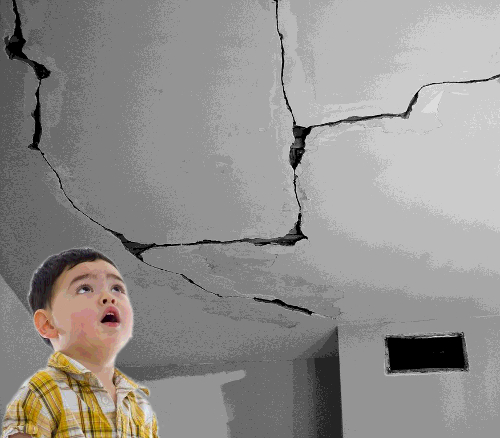Dodgy homes reviewed
 A new report says most Australians are stuck with inefficient, costly homes.
A new report says most Australians are stuck with inefficient, costly homes.
Research by the Australian Housing and Urban Research Institute (AHURI) highlights the poor state of Australian housing, revealing that more than 70 per cent of homes have an energy rating of three stars or lower.
The report warns that unless urgent improvements are made, Australians will continue to suffer from high energy bills, poorer health, and increasing financial stress due to substandard homes that are not equipped to handle extreme climates.
The study found that 70 per cent of households reported major building quality issues.
Cracks in walls were the most common problem (44 per cent), followed by mould (35 per cent) and plumbing issues (27 per cent). These defects have serious implications for the health, safety, and comfort of residents.
Lead researcher Associate Professor Lyrian Daniel from the University of South Australia says Australia’s housing standards fall well short of international best practices.
“As Australia looks to build 1.2 million new homes over the five years from 2023, the low quality of our housing is currently set to perpetuate,” Daniel said.
While energy efficiency standards were introduced in 2003, 82 per cent of new homes have only met the minimum requirements.
The current seven-star energy rating for new homes, although an improvement, is still far below the nine-star standard necessary to eliminate mechanical heating and cooling.
The study highlights a worrying trend in older housing stock, with 70 per cent of existing homes still rated at three stars or lower in energy efficiency.
By 2050, seven million homes will remain energy inefficient, leading to ongoing problems with excessive energy consumption, increased carbon emissions, and discomfort for occupants.
Voluntary housing standards, the report argues, are insufficient to address these problems.
“Voluntary policies and standards are important for encouraging leadership and innovation,” Daniel noted, “but they only improve a small proportion of the housing stock. Mandatory approaches are needed to lift the environmental standard of most homes.”
The report points to the Australian Capital Territory (ACT), where mandatory energy efficiency disclosure has led to higher performance standards and better market transparency.
The ACT’s compulsory disclosure policy resulted in house price increases for homes with improved energy efficiency ratings, incentivising homeowners to make necessary upgrades.
The report calls for a comprehensive national housing strategy, which would involve improved performance standards for new houses, mandatory energy performance disclosures for all homes at the point of sale or lease, and stricter standards for rental properties.
It also calls for independent building compliance and a rigorous enforcement process to ensure these standards are met.
The report says Australia's housing data infrastructure is fragmented, with significant gaps in available data on housing conditions.
No single dataset provides a complete picture of Australian housing standards, making it difficult for policymakers to effectively monitor and regulate the housing sector.
The report calls for a coordinated, nationally-driven data infrastructure to shape policy responses and track progress over time.
International case studies from the UK, the US, and Aotearoa New Zealand demonstrate the effectiveness of mandatory housing regulations.
The research cites the UK’s Energy Performance Certificates and New Zealand’s Healthy Housing Index as examples of how mandatory policies can lead to significant improvements in housing quality and energy efficiency.
The full report is accessible here.







 Print
Print



